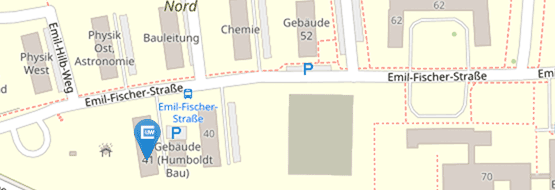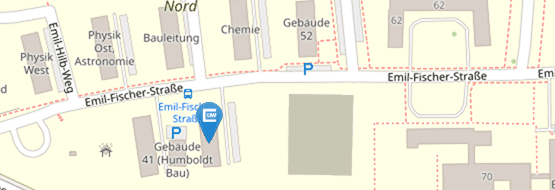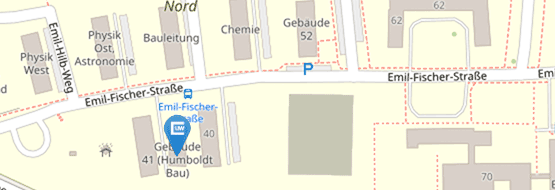Final Theses
Topics for theses are found individually. In any case, please follow these instructions [German].
If interested: frank.werner@mathematik.uni-wuerzburg.de
Of course, admission essays in the teaching degree programs are also assigned upon request. Formal criteria can be found on the institute's page on study organization:
Degree theses
- On minimax detection of localized signals from indirect or correlated data (Göttingen, 2022)
- Multiscale Scanning in Higher Dimensions: Limit theory, statistical consequences and an application in STED microscopy (Göttingen, 2018)
- Quantitative magnetic resonance imaging as an inverse problem (2025)
- Integrating Hidden Markov Models and Bayesian Inference for Sequential Data Analysis (Würzburg, 2025)
- Variationelle K onvergenzanalysis iterativ regularisierter Newton Methoden für nicht-gaußsche Daten (Würzburg, 2025)
- An Algorithm for Detecling Shorl-Lived Motion-lnduced Corruption in k-space (Würzburg, 2025)
- Inference Optimization of Diffusion Models for Image Denoising (2024),
awarded the CAIDAS Prize for best thesis - Bayesian Inference for Composition of Hypotheses in Sequential Data (Würzburg, 2024)
- Comparison of trace estimating algorithms in filter-based regularization of statistical inverse problems (Würzburg, 2022)
- Tikhonov-based Hypothesis Testing for Statistical Inverse Problems (Würzburg, 2022)
- A convergence analysis for solving inverse problems with a trained neural network as a regularizer (Würzburg, 2022)
- Finding Fluorescent Markers using Neural Networks: Mathematical Theory and Practical Implementations (Würzburg, 2021)
- Statistical Inverse Problems in the discretized white noise model (Göttingen, 2021)
- Modellbildung und Trendschätzung bei Sterbetafeln (Göttingen, 2020)
- Multiscale quantile regression in multiple dimensions (Göttingen, 2020)
- Minimax optimality of a Lepski-based parameter choice rule in statistical inverse problems (Göttingen, 2020)
- Approximate Bayesian Inference for Players' Strengths via the Glicko Rating System (Würzburg, 2025)
- Early Stopping beim CG-Verfahren (Würzburg, 2025)
- Identifikation eines PDE-Parameters mittels der IRGNM (Würzburg, 2023)
- The CG Method for Solving Tikhonov Equations (Würzburg, 2022)
- Alternatives Abbruchkriterium des CG-Verfahrens zur Lösung der Tikhonov-Gleichung (Würzburg, 2022)
- Numerischer Vergleich verschiedener Parameterwahlen für diskrete inverse Probleme (Würzburg, 2021)
- Runge-Kutta-Verfahren als Regularisierungsmethode für Inverse Probleme (Würzburg, 2021)
- Numerische Untersuchung des modifizierten Lepskiĭ-Verfahrens (Würzburg, 2021)
- Wie optimal ist das Quasi-Optimalitätsprinzip? (Würzburg, 2021)
- Implementation of variational Poisson denoising (Würzburg, 2021)
- Der Wiener Filter und Regularisierung (Würzburg, 2021)
- Solving an Inverse Transmission Scattering Problem via the Iteratively Regularized Gauss-Newton Method (Göttingen, 2014)








